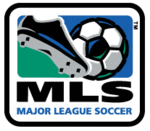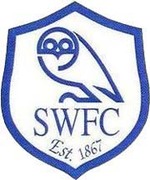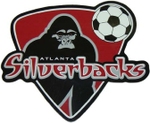Like Pele a generation ago, David Beckham is coming to America.
This is supposed to grow professional soccer in the U.S. into a true competitor to baseball, football, basketball and NASCAR.
Won’t happen.
It could happen, over time, but it won’t under the current circumstances.
American soccer today is a travesty.
Care? Read more.
Soccer in the U.S. is run as a unitary league, under the name Major League Soccer. It is controlled by Denver billionaire Philip Anschutz, the same toad who bankrolls many right-wing Astroturf groups (and is now on a crusade to take over Hollywood.)
The result is that MLS is crap. Not the standard of play, which keeps going up. But 8 of the league’s 12 teams make the play-offs, which roll on until long-after most fields have been re-striped for football and no one cares. (Who won MLS this year? Anyone?) And the teams near the bottom don’t have to play hard — they just play out the string. Other leagues face the same problem and, worse, even the best teams aren’t playing for anything real, even though cities like Rochester support their clubs vociferously.
What this means, in practical terms, is the vast majority of America will never have a chance to see Beckham perform. And he will never play a meaningful game here. MLS has franchises in some major cities — New York, Boston, Dallas, and Denver among them. But the way it expands is the way other U.S. leagues expand. Franchises are sold to local billionaires, who then seize the goodwill of the local soccer community, build a stadium with premium seating for multi-millionaires, and bitch when no one shows up (or seek tax breaks).
This is not the way the sport works. In England, and in every other civilized country, every team has the ability to move into the major leagues. A few teams in each pro league are "relegated" each year and then play in a lower league, while other teams are "promoted" and move up.
In England, this means teams like Fulham and Wigan can be bankrolled from the bottom of the divisions to the top, while those who failed to stay competitive, such as Sheffield Wednesday, are relegated until they reform.
There are two impacts from this.
First, every game is meaningful. Teams in the "drop zone" play hard at the end of the year, fearing relegation. Teams at the top also play hard, hoping for promotion — the top teams in the Premier League each season go on to play in European competitions the next.
Second, it means fans of every team have the hope of being major league some day, and thus an incentive to stay true to those teams. The teams are not mere franchises, but institutions. When Wimbledon, a suburb of London, was bought by Norwegian owners several years ago, who decided to move to the "new town" of Milton Keynes, they were rejected by the fans, and the team now plays in the bottom of the country’s professional structure.
In America, this could be accomplished simply, by a merger between MLS and the United Soccer Leagues. The schedule would then be simplified — each team would play home-and-away against every other team in the league. The bottom two would go down the next year, and play in the USL’s First Division. Teams in that league, meanwhile, could win promotion, either directly by winning the league or through a play-off among teams two-through-five. And the USL’s other divisions would play it the same way.
At the top, the team with the best record in MLS would qualify for the top continental tournament, the play-off champion would qualify for the World Soccer Cup (held in the Winter), and the league would seek premium friendlies for them against top clubs around the world.
There would be money on the line everywhere, there would be competition, every game would be meaningful. More important, cities like Atlanta (which now plays in the USL’s top league) would have the hope of joining MLS some day. As with the English Premier League, teams moving up might be required to expand their stadiums to stay up for more than a few years.
Instead of all this, what we’re going to see is Beckham, in the twilight of his career, playing to ever-smaller crowds away from home, with TV ratings dwindling. He’ll make it up in endorsements, and through his soccer academy (that’s where most of the money in this deal is coming from anyway). But there will be no American Soccer Revolution.
Which is a shame. It’s a beautiful game, and even the best matches are over in just 2 hours, with just one bathroom break in the middle and none of those TV time-outs.















” . . . and none of those TV time-outs.”
That’s the problem. If you want to be a top US sport you need to let TV be your pimp.
” . . . and none of those TV time-outs.”
That’s the problem. If you want to be a top US sport you need to let TV be your pimp.